News
View the latest inspiring and positive news and information about what's going on in the PM and IT world.
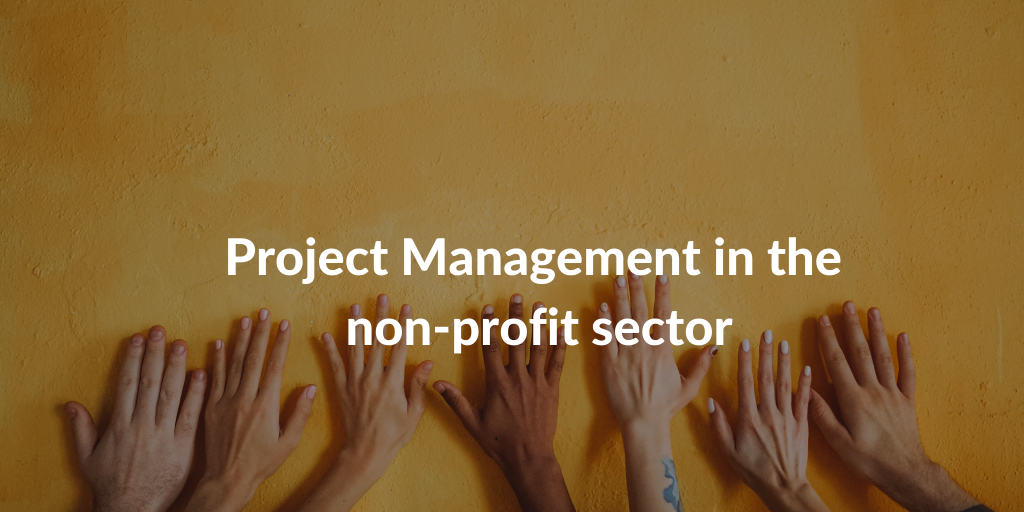
Date: 14/04/2021
Marta Binaghi collaborates with various voluntary associations active both nationally and internationally.
She is the proud owner of a PRINCE2 Foundation certification.

Read more
What is your role and what do you do specifically?
I have been collaborating as a volunteer with the Kibarè Onlus association (http://www.kibareonlus.org/) since 2014. That year I participated in a mission in Burkina Faso during which I was able to meet the child I had been supporting remotely for some years. I realized how many basic human rights are taken for granted in Italy, such as health and education, and how it is necessary to commit oneself so that they can truly become universal rights. Our association is small, so volunteers must necessarily be versatile! So far I have mainly dealt with the graphics but I have always helped with fundraising campaigns aimed mainly at making the association known locally.What does Project Management look like in a non-profit organisation? Do you have a particular use case that you would like to tell us about?
As mentioned, so far we have carried out different projects, we set up a nutritional centre and schools, one of which aimed at integrated education among able-bodied and disabled children. All these projects have been made available thanks to the donations of our supporters, private and companies, including QRP. We always wanted to participate in some calls for non-profit organisations for international cooperation projects but, frankly, none of us had the necessary training to present a convincing application for funding. Thanks to the PRINCE2 course given to us by QRP, we now have the skills to draw up a complete and solid project. This knowledge has enabled us not only to convince institutional investors to support the activity of Kibarè Onlus but also to help us to promptly and efficiently monitor the progress made. This gives us the capabilities to promptly manage the requests for change and the unexpected events that we inevitably have to face in a context as unstable and different from ours as that of Africa. I think that in some way Project Management can represent the winning compromise between the monolithic conception that we have of the intervention from Italy and the day-to-day decision-making approach of our local partners in Burkina. We have just started our new project, a kindergarten in a quarry on the outskirts of the capital Ouagadougou, where children can be cared for while the mothers are engaged in mining. I hope to be able to put into practice at least some of the guiding principles that I learned during the course and that I have already shared with the board of directors of Kibarè.What are the biggest challenges for a Project Manager working in your industry?
I think that the greatest difficulty is bridging the distance (not only physical but above all cultural) between our country and the foreign country where we are intervening. Many procedural aspects are often taken for granted and some requests can certainly seem bizarre to local partners. On the other hand, we underestimate the obstacles present in the area (lack of infrastructure, bureaucracy). Finding the necessary documentation can be an odyssey and the resources (especially human) to successfully complete a project are scarcer than people think. It has already happened, as an association, that we started an ambitious project and had to stop. Not for lack of funding, but because we realized, fortunately in time, that the local partner could not properly manage the complexity of the intervention. Returning therefore to the initial question, I could answer that the biggest challenge for a Project Manager active in international cooperation is to establish whether a project is feasible and to monitor that it remains so. → Download now: PRINCE2 2017 Project Initiation Document (PID)What skills do you think are fundamental for a PM in the non-profit sector?
I believe that the Project Manager profile is multidisciplinary by nature; however, there are three skills that in my opinion are essential to be successful in managing a non-profit project: listening, team organization and courage. Listening skills are crucial for anticipating risks and opportunities in the uncertain context in which non-profit organisations often operate. International cooperation connects different worlds such as Africa and Europe. The geographical, but above all, cultural distance requires extreme attention to any signal from the stakeholders that allows preventing, and at least promptly resolve, accidents along the way. Non-profit organisations frequently operate with a hybrid organisation, which combines paid staff and volunteers. While the paid staff usually have a clear role in the organisation, also the team organization of the volunteers is key. It is essential that the project manager values the volunteers by assigning them clear responsibilities, albeit consistent with their availability of time and their interests. I mentioned earlier the painful decision to shelve an ambitious project. In the changing context of the non-profit, the project manager must constantly monitor the expected benefits of the project and its probability of success. The project manager must demonstrate the courage necessary to question the continuation of the project if the development of these indicators requires it.
Marta Binaghi
Marta Binaghi collaborates with various voluntary associations active both nationally and internationally. She is the proud owner of a PRINCE2 Foundation certification.
Date: 07/04/2021
IT services deal with stakeholders throughout the ITSM (IT service management) organisation and in almost every process. Stakeholders are the human component of the service and are all those that have an interest in IT services. Stakeholders include also users and/or customers.
Even though often taken for granted, stakeholders are vital to achieving the organisation’s objectives.
Without stakeholders, an IT service does not exist. They are the ones who carry out the main processes and who provide the resources to ensure business continuity.
Stakeholders are key for ITSM and consequently key in ITIL 4.
Read more
Internal and external stakeholders
Stakeholders can be divided into two main groups, internal and external.Internal stakeholders
- They are those that work within the same organisation (think of the employees of the ITSM organisation, the team, management, partners etc.).
- When speaking about internal IT providers, these can also be internal customers.
External stakeholders
- They are those that are not part of the same organisation. These stakeholders can be external customers and/or users, suppliers and vendors.
Different Stakeholders
Within ITIL there are many different stakeholders identified. The four major stakeholders, without whom IT service management cannot survive are the following.. Service provider
They provide IT services such as internet, email, specific tools and network maintenance. Customer
Somebody that pays for the service, both internal and external. As the customer pays for the service, he/she puts in demand and agrees on service levels.. End-user
One that uses the service. This person might not be the one paying for the service but is entitled to use it.. Supplier
Another organisation that provides services and/or products. For example, hardware and/or software suppliers are the basis of the provided IT service.Stakeholder relevance
By being clear as to who the stakeholders of your IT service are, you are able to define the supporting organisation, processes and interfaces between. Stakeholders are basically (directly and indirectly) responsible for the delivery of services. If you understand who the stakeholders are, what their interests are and how they are/will be using your services you can understand their demands towards the services. Once you do so, you will be able to respond with appropriate capacity and adapt to the different stages of the IT service lifecycle. Some vital functions that stakeholders perform are:. Continual improvement
Through constant monitoring and evaluation of processes, stakeholders will guarantee continual improvement.. Objectives and strategies
Both small and large, immediate and long term objectives and strategies are based on the needs of all different stakeholders involved.. Implementation and delivery
The implementation of processes and tasks, but also the service delivery, will depend on the efficient work of stakeholders.ITIL 4 specialist: Drive Stakeholder Value
However important the stakeholder might be, often organisations do not give them the attention that they need. Organisations tend to focus on certain factors like efficient processes and appropriate technology. To reverse this thought and focus on the human component of IT services, Axelos launched the ITIL Drive Stakeholder Value – module. The module helps ITIL practitioners to increase stakeholder satisfaction. The ITIL DSV module is part of the ITIL 4 Managing Professional stream. The module is about engagement and interaction between service providers and stakeholders, including the conversion of demand to value via IT-enabled services. The module is built around the customer journey – from both parties engaging, agreeing to work together and interacting to co-create value. It encourages the service provider to help the consumer to continually improve.Key elements of driving stakeholder value
Changing the scope and approach of the traditional IT technician, the DSV module helps create awareness about how the interaction between provider and stakeholder will influence their ultimate experience and therefore the organisation’s success. The capabilities to develop are:. Ensuring high satisfaction levels
When consuming a service, the experience should be just as important as the outcome. Using human-centred design
Achieve better usability and experience by understanding how the customer feels when using a service. Customer Experience (EX) and User Experience (UX) design
Achieving quality outcomes based on experience agreements. Stakeholder communication
Listening and understanding what each party wants and needs, understanding the dynamics and co-create value QRP organizes ITIL 4 Drive Stakeholder Value courses, both virtual and onsite. Find out more here. Source: Axelos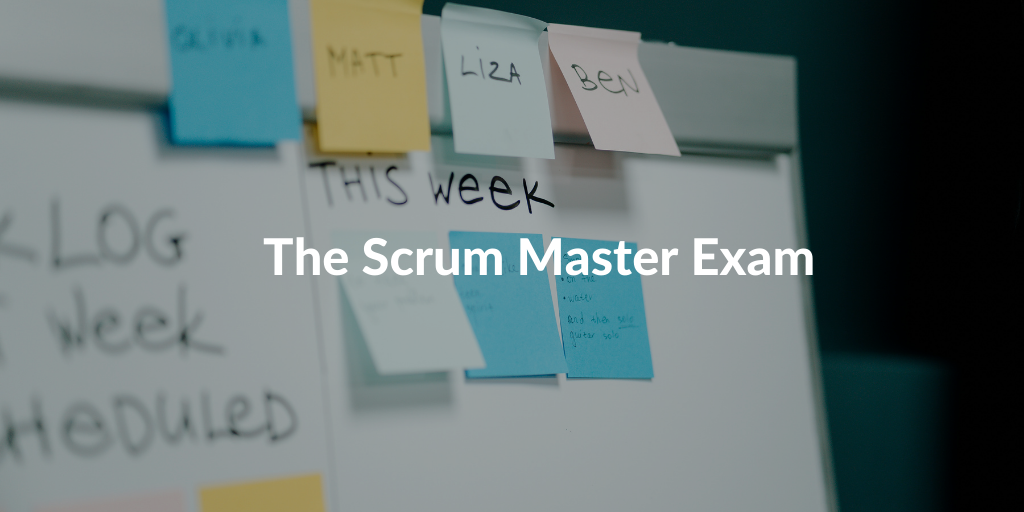
Date: 31/03/2021
The ABC Scrum Master course is aimed at anyone who wishes to get sufficient knowledge and understanding of Agile Principles and the Scrum Guide to start helping teams and organisations adopt Scrum.
The ABC Scrum Master exam is a closed-book examination and is intended to address the knowledge and skills that demonstrate proficiency in knowledge and understanding of the Scrum Framework.
Let’s dive into the characteristics of the exam!
Read more
Examination Target
- Anyone involved in product & solution development using the Scrum framework
- Scrum Masters, managers and Scrum team members
- Aspiring Scrum Masters
- Solution Developers & Testers
- Team Leaders
- Process Owners & Managers
- Individuals involved in product delivery using the Scrum framework
Exam Format
- Language: German, English, French
- Duration: 40 minutes (50 for non-native speakers)
- Materials: No materials
- Closed book exam
- Questions: 50
- All 50 questions are Objective Test Questions (OTQs)
- Pass Mark: 34 marks or above
- Level of Thinking: Bloom’s levels 1 & 2
- Exam Format: Online or Paper
- Certificate Format: Online
Exam Sample Questions for ABC Scrum Master Exam
There are a number of different test styles used within the exam. All test styles are based on the selection of the correct answer from a choice of 4 options. The test styles are Standard, Negative, Missing Word, Select (list), Select (evaluation).Example ‘standard’ OTQ
Which is a Scrum Event? a) Q b) R c) P d) SExample ‘negative’ standard OTQ
Which is NOT a Scrum Value? a) Q b) R c) P d) SExample ‘missing word’ OTQ
Identify the missing words in the following definition of Scrum. Scrum is a framework within which [ ? ], while productively and creatively delivering products of the highest possible value. a) Action Q b) Action R c) Action P d) Action SExample ‘select (list)’ OTQ
How should a Scrum Master serve an Organization? 1. It does Q 2. It does R 3. It does P 4. It does S a) 1, 2, 3 b) 1, 2, 4 c) 1, 3, 4 d) 2, 3, 4Example ‘select (valuation)’ OTQ
Which of the following statements about the use of Scrum are true? 1. It does Q and R 2. It does P a) Only 1 is true b) Only 2 is true c) Both 1 and 2 are true d) Neither 1 or 2 is true → Read now: What is a Scrum Master? Role and ResponsibilitiesABC SCRUM Master Objectives
The objective of the examination is to enable you to demonstrate an understanding of the Scrum Master Concepts (or Rules), Roles, Events and Artefacts. The learning objectives for ABC Scrum Master are:- Gain a deep understanding of the Scrum Framework – the theory, practices, roles, rules and values – as defined in The Scrum Guide.
- Understand – in detail – the role of Scrum Master and how the role interacts with different members of the Scrum Team and other stakeholders.
- Master the Scrum principles to better understand their application when returning to the workplace.
- Understand how to construct an effective development team with an appropriate mix of skills and experience.
- Know how to act as a servant-leader for the Scrum Team, promoting and enabling self-organization to create high-value products.
- Learn how to facilitate Scrum Events and remove impediments to the Scrum Team’s progress.
- Help Scrum Product Owners shape and refine product backlogs to guide early and incremental delivery of valuable products.
- Drive adoption of the Scrum framework for more effective product and solution development, working with stakeholders and other Scrum Masters to improve its effectiveness.
ABC SCRUM Master Certificate
The validity of the ABC Scrum Master certificate is a lifetime. This certificate will never expire. QRP International is a Scrum Master Accredited Training Organisation (ATO) by APMG, is authorized to deliver ABC Scrum Master courses and can prepare you for the examination leading to the ABC Scrum Master Certification.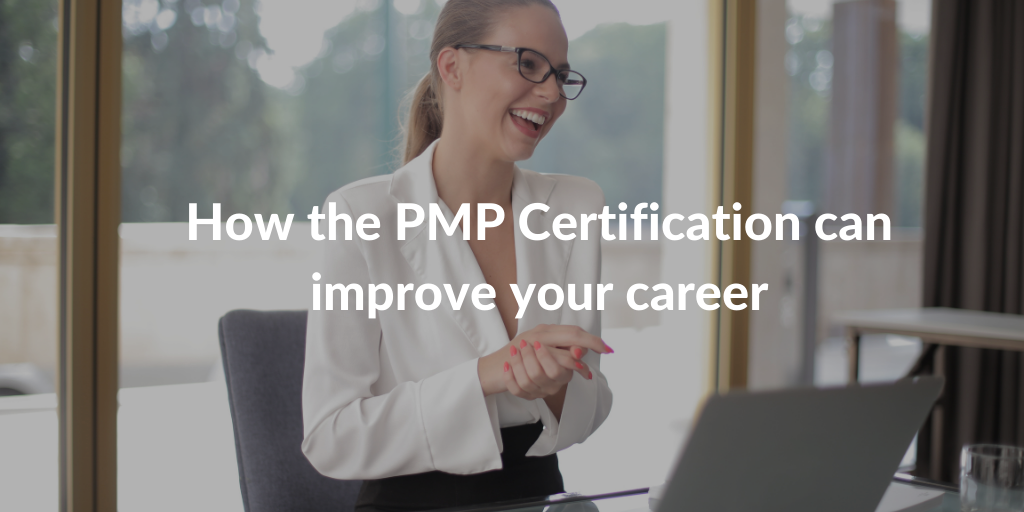
Date: 24/03/2021
With the same experience and curriculum, it is obvious that, when applying for a job, a candidate in possession of a certification attesting to their knowledge is an advantage.
In this article, we analyze the benefits of obtaining a PMP certification to understand how, on a practical level, this can be fundamental for a successful career in the world of Project Management.
Read more
Why a PMP certification?
It is essential to understand why PMP certification is so important in Project Management. The PMP certification:- Provides a large body of highly expendable transversal knowledge
- Has over 1 million certified professionals in 200 countries
- Is recognized internationally and in all sectors
- Helps in professional growth and in affirming one’s knowledge
1. Common language
The internationality and widespread use of the PMP method allow all certificates to speak a common language. Which is understandable regardless of the type of sector, cultural and/or business background. This means that at a potential level all certified PMP professionals can work in a team without having communication problems. Making it possible not only for a professional to work at their best in their team, but to be able to achieve goals in any team.2. Network of professionals
There are more than 1 million certified PMP professionals worldwide. In addition to actively participating in the events and initiatives proposed directly by the PMI, they can join other communities, called the PMI Chapters, distributed geographically. Thanks to these networks, professionals can get in touch with each other, follow webinars and workshops and above all stay up to date on the news promoted by the PMI. This guarantees certified professionals to be aware of the latest trends and developments in the world of Project Management, an area in which being always up to date is really essential.3. Career options: More responsibilities and challenging projects
Obtaining the PMP certification demonstrates that a professional possesses the knowledge, skills and abilities necessary to be able to receive greater responsibility within the most important projects for the success of the organisation. This allows the professional to work both in more important roles and on more interesting and stimulating projects, thus creating a virtuous cycle with a continuous work on skills. Constantly aiming to be able to work on projects that require more and more commitment and lead to increasingly complex challenges. This allows the professional to find more and more stimuli in his/her work, increases his/her professional profile, making it more usable and of a high level.4. Salary increase
It is obvious that the salary benefit should not be overlooked: according to a PMI research, more than 80% of professionals who have obtained a certification have a salary that is 22% higher than the non-PMP certified professionals. In addition, even starting a new job, PMP certification ensures the candidate a starting salary that is around 20% higher in most cases. → Read Now: The PMP Exam – all you need to know As an Accredited Training Provider (ATP), all the PMP certification courses provided by QRP International guarantee the automatic recognition of the PMP Contact Hours necessary to access the exam. For all information, consult the course calendar or write us!
Date: 17/03/2021
As many of you know the PMBoK is coming out this year.
Yes, like many of you I am eager to get my copy - #Excited!
Luckily PMI members have free access to the electronic version via pmi.org.
Now many of you are asking yourselves why should it change?
What is the big deal?
And to answer these questions it is important to understand the business and societal landscape in which we find ourselves. A few years ago I proposed a slightly different version of what we all know to be the VUCA model, called DACRI (Diversity, Ambiguity, Complexity, Rapidly-changing, Interdependence).
This model emphasized that the world has gravitated towards a more diverse, ambiguous, complex, rapidly-changing and interdependent project management landscape. The COVID-19 pandemic has accelerated these factors while disrupting ‘normal’ ways of working leading to unprecedented changes in business and society.
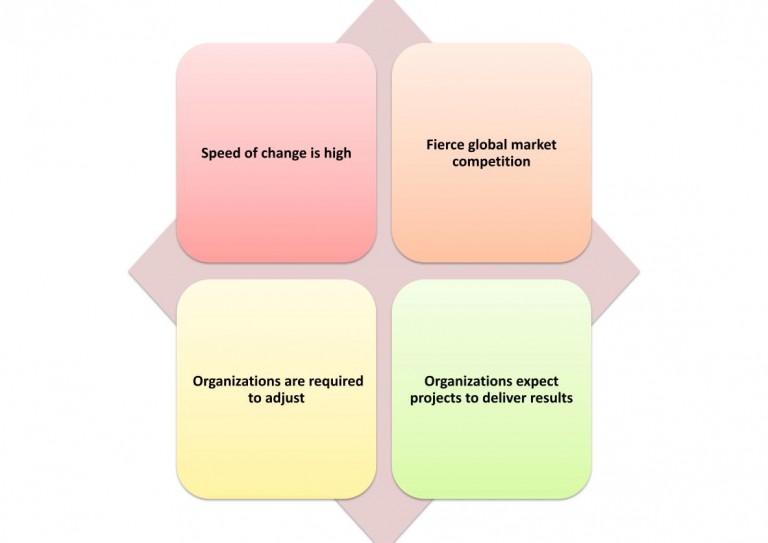 These unprecedented challenges have catalyzed the need for companies to enable a more agile and rapid transformation across all fronts. One is for sure; many environmental forces are at play to transform our profession of project management.
In PMI’s strategic plan they rightly point out the below forces that require continuous evolution of project management to help “Empower people to make ideas a reality”, which is the essence of project management:
These unprecedented challenges have catalyzed the need for companies to enable a more agile and rapid transformation across all fronts. One is for sure; many environmental forces are at play to transform our profession of project management.
In PMI’s strategic plan they rightly point out the below forces that require continuous evolution of project management to help “Empower people to make ideas a reality”, which is the essence of project management:
What fascinates me the most about the transformation is the focus on project outcomes.
This is novel in a way because project management has traditionally focused on outputs.
Focusing on outcomes means shifting away from a process approach that can be considered a hallmark of the previous versions of the PMBoK and has been the main focus ever since I can remember being a PMI member.
Processes will no longer be part of the core PMBoK. They will be part of the PMI standards + platform.
Now do not get me wrong, I am not saying that processes are not important. A process is an activity or series of activities, that converts an input, to an output, by doing work. Processes exist to add value, achieve outcomes and meet the requirements of customers.
They are integral in arriving at the desired outcomes. However, when outcomes are at the forefront, they force PMs to “think with to end in mind” as one of my favourite personal development gurus famously said:

Read more
 These unprecedented challenges have catalyzed the need for companies to enable a more agile and rapid transformation across all fronts. One is for sure; many environmental forces are at play to transform our profession of project management.
In PMI’s strategic plan they rightly point out the below forces that require continuous evolution of project management to help “Empower people to make ideas a reality”, which is the essence of project management:
These unprecedented challenges have catalyzed the need for companies to enable a more agile and rapid transformation across all fronts. One is for sure; many environmental forces are at play to transform our profession of project management.
In PMI’s strategic plan they rightly point out the below forces that require continuous evolution of project management to help “Empower people to make ideas a reality”, which is the essence of project management:
"The only constant in life is change”-HeraclitusWith the environment changing, the impact on project work is undeniable. According to a report from Accenture, titled ‘Shaping the Agile Workforce’, 79% of executives agree that work is shifting from roles to projects. This will impact the new PMBoK.
The new PMBoK - 7th edition
You are probably aware that the new PMBoK will not be following the rules of its predecessors. It will be a rebel of sorts. What do I mean by that? Well, the transformation from the sixth edition to the seventh will imply a few transformative elements. Many people are calling this a “dawn of a new era” in project management. Here is an overview of some of the changes that I was able to research:| PMBoK 6th edition | PMBoK 7th edition | |
|---|---|---|
| Overall Approach |
|
|
| Basis for Design |
|
|
| Project Environment |
|
|
| Project Application |
|
|
| Target audience |
|
|
| Degree of change |
|
|
| Tailoring guidance |
|
|
"Begin with the End in Mind" - Stephen Covey (1989)
As Project Managers, we often succumb to the pitfall of focusing too much on our outputs, deliverables and processes. This is because the very nature of our craft focuses on adhering to a methodology. We focus on "doing things right" through a sub-set of processes (the “HOW”) while attaining the output of the plan (the “WHAT”). In this regard, I like how the new PMBoK approach will help to re-orient us towards the outcomes (the “WHY”) of doing things. Help you focus on outcomes vs outputs project (and to take it a step further on benefits). The PMBoK is shifting the focus from outputs to outcomes. → Read Now: PMI-PMP: the New ExamOutcome thinking
Outcome thinking is result-focused. It is a mindset behavioural change, which will require many to think differently. Some Project Managers, who have found comfort in processes, will be pushed out of their comfort zone to use judgement and experience to guide outcome-thinking rather than relying heavily on a methodology. Emphasizing outcomes will help foster a generation of Project Manager that “think with the end in mind” rather than comply with processes. This will help us to re-think how we approach our craft. Many project management professionals have sought comfort in the stability and certainty of processes. In the world of yesterday, managing uncertainty required a structured process-focused structure of predictability. This is no longer enough, in our unprecedented, disruptive and unpredictable world – we need to develop project management gut instinct. The world that we live in today is much more complex than ever before. It requires focusing on the outcome and adapting various tools, techniques and methodologies to reach strategic objectives. Not one methodology is a sure shot for success – actually it never was. Following processes was never enough. That is why when I talk about the new PMBoK as somewhat a revolutionary approach, it will be – and I welcome this new era. It will require many of us who have been brought up through a process approach to unlearn some conventional thinking. It will require us to be bold and dare to deviate from conventional thinking. I have never considered myself a Rebel – but to adapt to the new realities of today and start embedding the ways of working of PMBoK 7th edition, I think I will have to challenge the status quo and become a PM rebel.To conclude: Be Bold – and dare to deviate to drive outcome!
The next chapter of this journey will be about competency development and the skills needed to support an outcomes-driven mindset. This is what PMI is calling “Power Skills”. I recently watched a video on a recent PMI Madrid Chapter event, where Ashwini Bakshi was presenting. It was inspirational, to say the least, but what really captured my attention was the evolution of PMI’s Talent Triangle towards what is called “Power Skills”. These skills are unique and focus less so on traditional technical skills of project management and include among others:- Empathy
- Collaborative Leadership
- Creativity
- Humility and Authenticity
Kamil Mroz

Award-winning Project Leader & Future50 Honoree
Kamil Mroz is deeply involved and passionate about contributing to the PM community by regularly speaking at PM conferences, actively contributing to publications and enthusiastically sharing his experience with the next generation of project managers.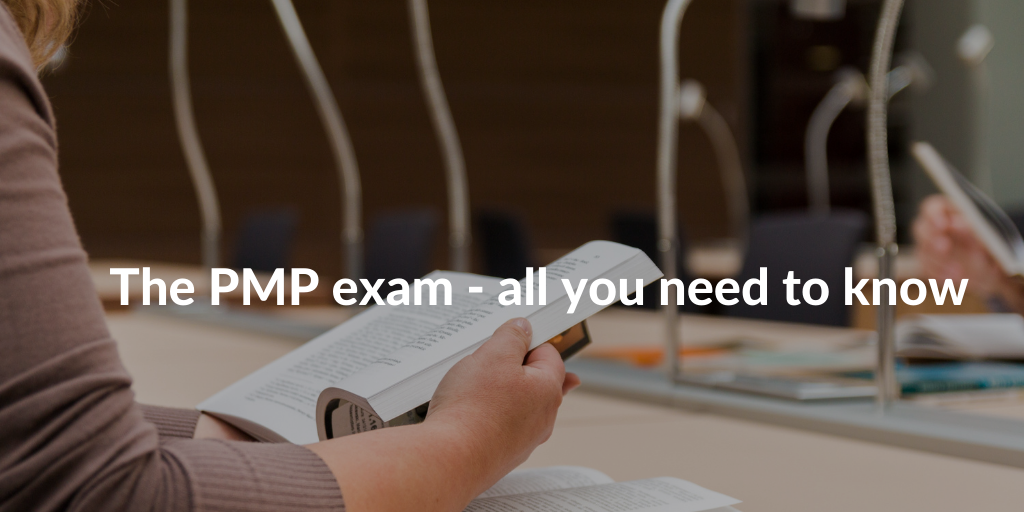
Date: 10/03/2021
On January 2nd 2021, the PMP certification exam promoted by the Project Management Institute (PMI) was updated with some changes. All the features of the exam currently in use at the Project Management Institute are described in this post.
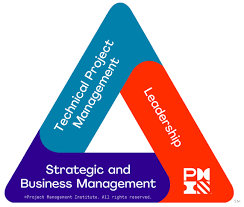 By following the training and passing the PMP exam, candidates will be able to understand and apply the processes and practices required to create efficient and high-performance work teams.
Those that pass the exam will also be able to assess that the success factors for each project exist within the organisation. They will learn to plan projects at each stage and scope: budget, scheduling, scope, quality, project activity, procurement and closure.
This will allow candidates to execute successful projects and create business value.
By following the training and passing the PMP exam, candidates will be able to understand and apply the processes and practices required to create efficient and high-performance work teams.
Those that pass the exam will also be able to assess that the success factors for each project exist within the organisation. They will learn to plan projects at each stage and scope: budget, scheduling, scope, quality, project activity, procurement and closure.
This will allow candidates to execute successful projects and create business value.
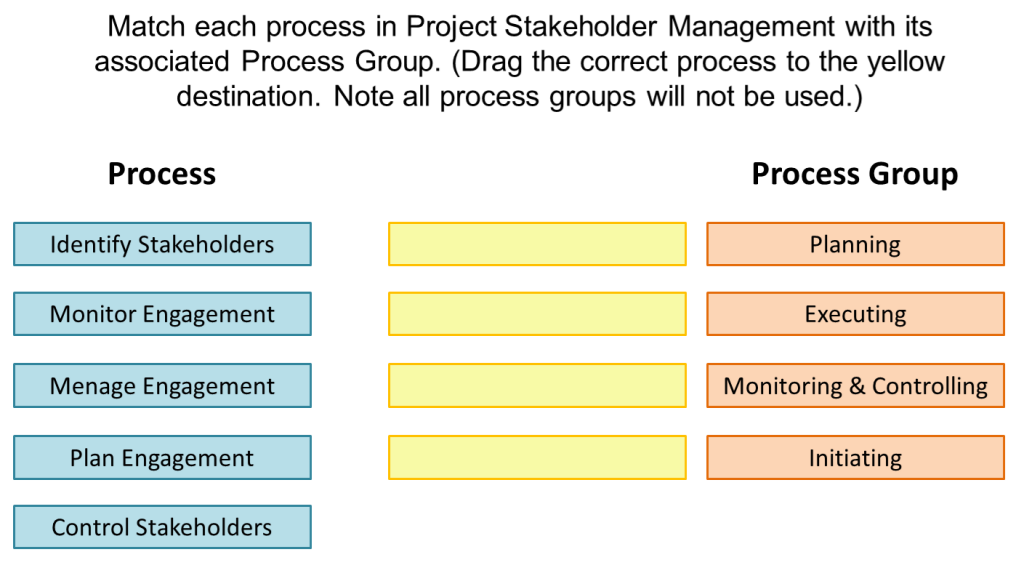
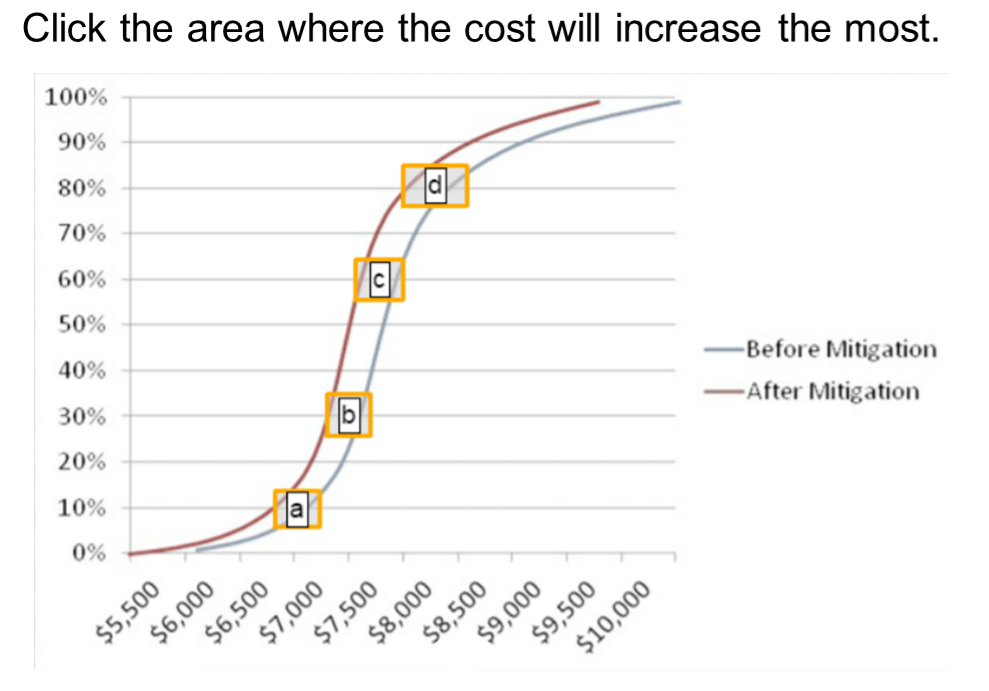
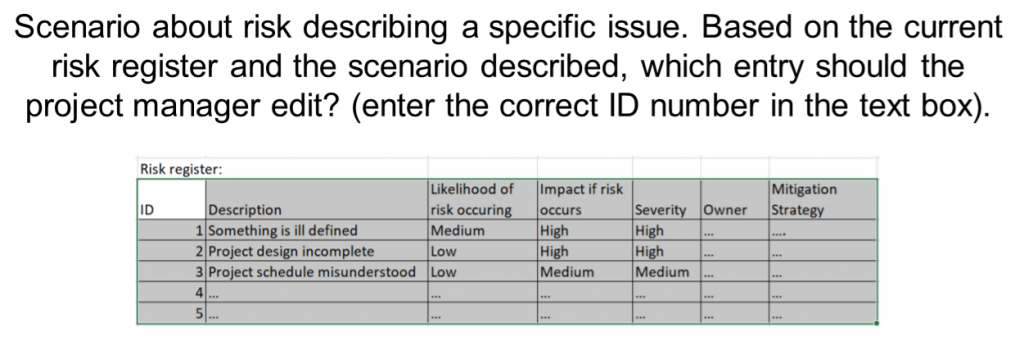
Read more
Prerequisites for accessing the PMP exam
In order to register for the exam, each candidate must meet all the prerequisites of one of the following groups:- Four-year degree.
- 36 months of project management experience.
- 35 hours of PMP training.
- High school diploma.
- Associate degree or equivalent.
- 60 months in project management.
- 35 hours of PMP training.
PMP exam format
- 180 questions.
- 230 minutes.
- 2 breaks of 10 minutes each.
- The questions are made out of a combination of different question types (multiple-choice, multiple responses, matching, hotspot and limited fill-in-the-blank).
Target audience PMP exam
As deductible from the prerequisites required to access the exam, the PMP certification is aimed at professionals who have already gained on-the-job experience. Specifically to Project Managers who:- Want or need training requirements to get PMP certification.
- Want to broaden their knowledge in Agile and hybrid approaches.
PMP exam objectives
Surely one of the main objectives of the following training and passing the PMP exam is to develop the skills theorized by the Project Management Institute within the Talent Triangle:- Technical management skills.
- Leadership skills.
- Strategic and business management skills.
 By following the training and passing the PMP exam, candidates will be able to understand and apply the processes and practices required to create efficient and high-performance work teams.
Those that pass the exam will also be able to assess that the success factors for each project exist within the organisation. They will learn to plan projects at each stage and scope: budget, scheduling, scope, quality, project activity, procurement and closure.
This will allow candidates to execute successful projects and create business value.
By following the training and passing the PMP exam, candidates will be able to understand and apply the processes and practices required to create efficient and high-performance work teams.
Those that pass the exam will also be able to assess that the success factors for each project exist within the organisation. They will learn to plan projects at each stage and scope: budget, scheduling, scope, quality, project activity, procurement and closure.
This will allow candidates to execute successful projects and create business value.
Topics of the PMP exam
The questions of the PMP exam can be divided into three main domains:- People: questions that focus on the skills and activities needed to lead a project team effectively.
- Process: questions aimed at verifying that the candidate knows the technical aspects of managing a project.
- Business environment: questions on the connection between projects and organizational strategy and how to acquire the maximum added value from this synergy.
Examples PMP exam questions
The PMI has published two documents with examples and prototype questions.- Here you can find some examples of multiple-choice questions,
- while here you can find the explanation and examples of the new types of questions.
Example multiple choice question
An accepted deadline for project approaches. However, the project manager realizes only 75% of the work has been completed. The project manager then issues a change request. What should the change request authorize? Answers: A. Additional resources using the contingency fund. B. Escalation approval to use contingency funding. C. Team overtime to meet schedule. D. Corrective action based on causes - right answer.Example Multiple responses question
You are running a project to engineer and implement a set of business processes and a software solution for customer relationship management. The project involves a large number of organizations―a major corporation and many suppliers of different sizes. During the project, you observe the effects of the differences between the companies’ corporate cultures. This leads to different expectations on how the project should be handled—as well as to frequent misunderstandings between stakeholders. Another effect is a growing degree of distrust and scepticism. What should you try first to integrate the diverse stakeholder groups? Answers: A. Focus on project work. As a project manager, you should not get distracted by big egos. B. Let the problems grow further until they are obvious for all. Then escalate them. C. Develop a joint quality policy for the project and seek a commitment by all organizations. D. Analyze the probability and impact of the risks linked with the situation - right answer. E. Plan how to respond to the risks - right answer.Example drag and drop (or matching) question
In this type of question, the candidate has to drag the right process to match the respective process group.
Example hotspot question
The candidate will be asked to interact with the digital graph and make calculations to estimate specific data points.








